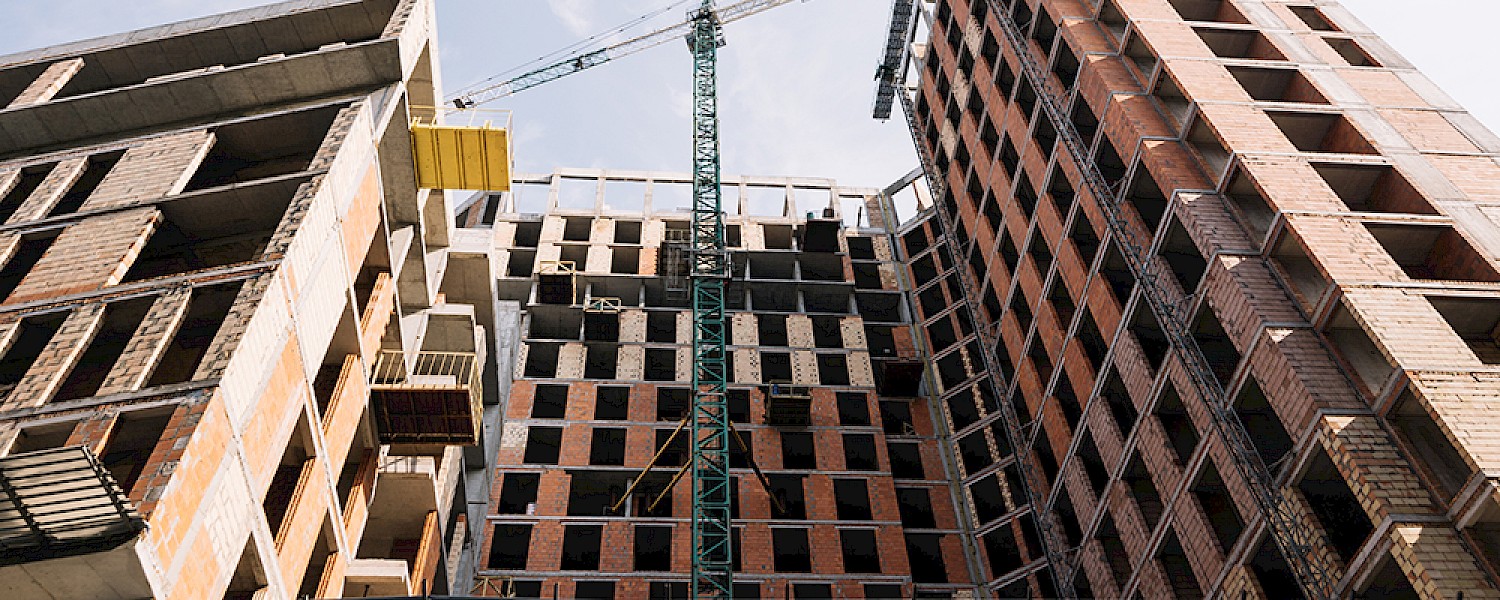When purchasing a property in Future Completion Sale (Vente en État de Futur Achèvement, VEFA), the legislator provides protection to buyers against hidden or apparent defects. The definitions of these terms are strict. Here is a summary of important information to know when purchasing a property in VEFA.
What type of properties are we talking about?
These are real estate properties that are not yet completed and are intended for use as housing or for mixed professional and residential purposes. The provisions of the law protect buyers of these properties provided that the seller is also the project manager, that payments have been made by the buyer before the end of the work, and that the building meets the criteria mentioned above. In the case of condominiums, the promoter's guarantee applies as soon as at least one unit has been sold, whether at term or in future state of completion.
Find all our properties for sale here.
Defects and Flaws
Although there are guarantees in place to protect consumers, particularly buyers in VEFA, the law makes important distinctions between apparent defects, hidden defects, and non-conformities.
Logically, an apparent defect is visible upon delivery of the property when the works are completed. They can be easily detected during a basic inspection of the premises.
In contrast, a hidden defect is not detectable at first sight during the reception of the works and may even appear later.
Finally, the notion of non-conformity is invoked when the delivered property does not correspond globally or partially to what was agreed upon, without necessarily being a technical defect. This may concern the color, material, quantity, etc.
Variable warranty periods
Warranties vary depending on the type of defect or fault, as specified by law.
For visible defects, the statute of limitations was reduced from one year before 1987 to 30 years for private sellers and 10 years for professional sellers (which is often the case for VEFA).
However, if the buyer does not report visible defects upon receipt of the property, they are considered "accepted." Some sellers try to transform hidden defects into presumed defects to benefit from this provision. All defects are considered hidden unless the seller proves otherwise to avoid different and more restrictive statutes of limitations.
For hidden defects, the warranty from the developer (the professional seller in most cases) is 2 years for minor work and 10 years for major work that affects the property's solidity or habitability. In any case, it is essential to report the defect as soon as possible before the end of the statute of limitations and to take legal action within a year of reporting the defect.
As for conformity defects, the law does not specify anything particular, so general law applies. The warranty period to take legal action is 10 years for a professional seller and 30 years for an individual. It should be noted that for conformity defects, the deadlines start running from the handing over of the keys and not from the acceptance of the works.
Who is responsible?
In general, the responsibility falls on the seller, that is, the developer, to ensure the effects of the warranty in the event of a defect. Even if the property has been resold, the developer and the first seller are still responsible. However, buyers can also pursue architects or other tradespeople. Professional warranties and legal procedures will then be used to resolve the dispute.
How to restore the property?
To correct the defects, the seller can offer to either replace the defective property with a new one or restore it, known as "repair in kind". The buyer is obliged to accept this solution and cannot demand the cancellation of the sale or a discount on the sale price. However, if the seller refuses to make the repair, if it is technically impossible or if it is not done within a reasonable period of time, the buyer can ask the judge to cancel the sale. It should be noted that the buyer can engage a third-party company to carry out the repair in kind, at the expense of the seller if the latter cannot or does not want to take care of it.
As for apparent defects, there are no specific provisions in the law for VEFA, but common law applies. In other words, the seller is required to make the repair, otherwise, the sale can be cancelled, and the buyer compensated.
In conclusion
To sum up, although buying in Future Completion Sale can offer financial and aesthetic advantages, as well as potential tax benefits, it can also involve risks and lead to disputes. Therefore, it is essential to surround oneself with experienced professionals during site visits and key handovers, and to seek legal advice in case of identified defects or faults, given that the legislation is very strict about deadlines for reporting such problems.




